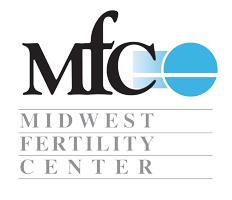Polycystic Ovarian Syndrome (PCOS) is one of the most common hormonal disorders affecting women of reproductive age. It impacts approximately 1 in 10 women globally, yet many remain undiagnosed due to the complexity of its symptoms and underlying causes. Let’s dive into what PCOS is, its symptoms, causes, and how it can be treated effectively.
What is PCOS?
PCOS is a condition where a woman’s ovaries produce excessive amounts of androgens (male hormones) that are usually present in small quantities. The condition is named after the small cysts that often form in the ovaries due to the overproduction of hormones, although not all women with PCOS will have these cysts.
PCOS disrupts the normal functioning of the ovaries. Instead of a regular ovulatory cycle where an egg is released, many women with PCOS experience irregular or absent ovulation, which leads to menstrual irregularities and fertility issues. This hormonal imbalance can also contribute to a range of symptoms, which can vary in severity from one woman to another.
Common Symptoms of PCOS
– Irregular periods: Women with PCOS often experience infrequent or prolonged menstrual cycles. They may have fewer than eight periods a year, or experience periods that are heavy when they do occur.
– Excess androgen levels: High levels of androgens may result in physical signs such as excess facial and body hair (hirsutism), severe acne, and male-pattern baldness.
– Polycystic ovaries: Ovaries may become enlarged and contain numerous small cysts (fluid-filled sacs) that surround the eggs.
– Weight gain: Many women with PCOS tend to gain weight or find it difficult to lose weight, particularly around the abdomen.
– Fertility issues: Since PCOS affects ovulation, many women may face challenges in conceiving.
– Skin issues: Darkening of the skin, especially in creases like those around the neck or underarms (acanthosis nigricans), and skin tags are also common.
What Causes PCOS?
The exact cause of PCOS remains unclear, but several factors are believed to contribute to its development:
1. Insulin Resistance: A significant percentage of women with PCOS have insulin resistance, where the body’s cells don’t respond effectively to insulin. This leads the body to produce more insulin, which can increase androgen production and contribute to symptoms like weight gain and irregular ovulation.
2. Hormonal Imbalance: PCOS is characterized by an excess of male hormones, androgens, which interfere with the ovaries’ ability to release eggs normally during each menstrual cycle.
3. Genetics: PCOS tends to run in families, suggesting a genetic component. If a mother or sister has PCOS, there’s a higher likelihood of developing the condition.
4. Inflammation: Low-grade inflammation is commonly observed in women with PCOS, contributing to insulin resistance and hormone imbalances.
How is PCOS Diagnosed?
PCOS can be difficult to diagnose due to its broad range of symptoms that overlap with other conditions. Typically, a diagnosis is made based on at least two of the following criteria:
– Irregular or absent periods
– Signs of excess androgen levels (either through physical symptoms or blood tests)
– Polycystic ovaries visible on ultrasound
A doctor https://mfcfamily.com/ may also order blood tests to rule out other conditions that can cause similar symptoms, such as thyroid disorders.
Treatment for PCOS
While there’s no cure for PCOS, the symptoms can be managed effectively with lifestyle changes and medical treatments. The goal of treatment is to manage individual symptoms and reduce long-term health risks, such as diabetes and heart disease.
1. Lifestyle Modifications
– Diet and exercise: A balanced diet and regular physical activity can help improve insulin sensitivity, promote weight loss, and regulate the menstrual cycle. Women with PCOS are often encouraged to eat a diet rich in whole grains, lean proteins, and healthy fats, while reducing their intake of refined carbohydrates and sugars.
– Weight management: Losing even a small amount of weight (5-10% of body weight) can significantly improve symptoms and increase the chances of ovulation.
2. Medications
– Hormonal birth control: Oral contraceptives or hormonal patches can help regulate the menstrual cycle and reduce androgen levels, which can alleviate symptoms like acne and excess hair growth.
– Anti-androgens: Medications like spironolactone can block the effects of androgens, reducing symptoms such as hair growth and acne.
– Metformin: This medication, commonly used for diabetes, improves insulin sensitivity and can help regulate ovulation and menstrual cycles.
– Fertility treatments: For women trying to conceive, medications like clomiphene or letrozole may be prescribed to induce ovulation. In more severe cases, assisted reproductive technologies (ART) like in-vitro fertilization (IVF) may be recommended.
3. Cosmetic Treatments
– Hair removal: For women with excess hair growth, options like laser hair removal or electrolysis can help manage this symptom.
– Acne treatments: Dermatological treatments, including topical or oral medications, can help control acne caused by high androgen levels.
Long-Term Health Considerations
Women with PCOS are at an increased risk of developing several long-term health issues, including:
– Type 2 diabetes: Insulin resistance is a precursor to diabetes, and women with PCOS are more likely to develop this condition, especially as they age.
– Heart disease: PCOS increases the risk of cardiovascular disease due to factors such as insulin resistance, obesity, and high cholesterol levels.
– Endometrial cancer: Irregular periods or the absence of menstruation can lead to the thickening of the uterine lining, increasing the risk of endometrial cancer.
– Mental health challenges: PCOS can impact mental health, with higher rates of depression and anxiety observed in women with the condition.
PCOS is a complex condition that can affect multiple aspects of a woman’s life, from her fertility to her long-term health. However, with early diagnosis, lifestyle changes, and appropriate treatment, the symptoms of PCOS can be managed, and the risks of related health issues can be reduced. If you suspect you have PCOS, it’s essential to seek medical advice https://mfcfamily.com/, as proper management can help lead a healthy, fulfilling life.

